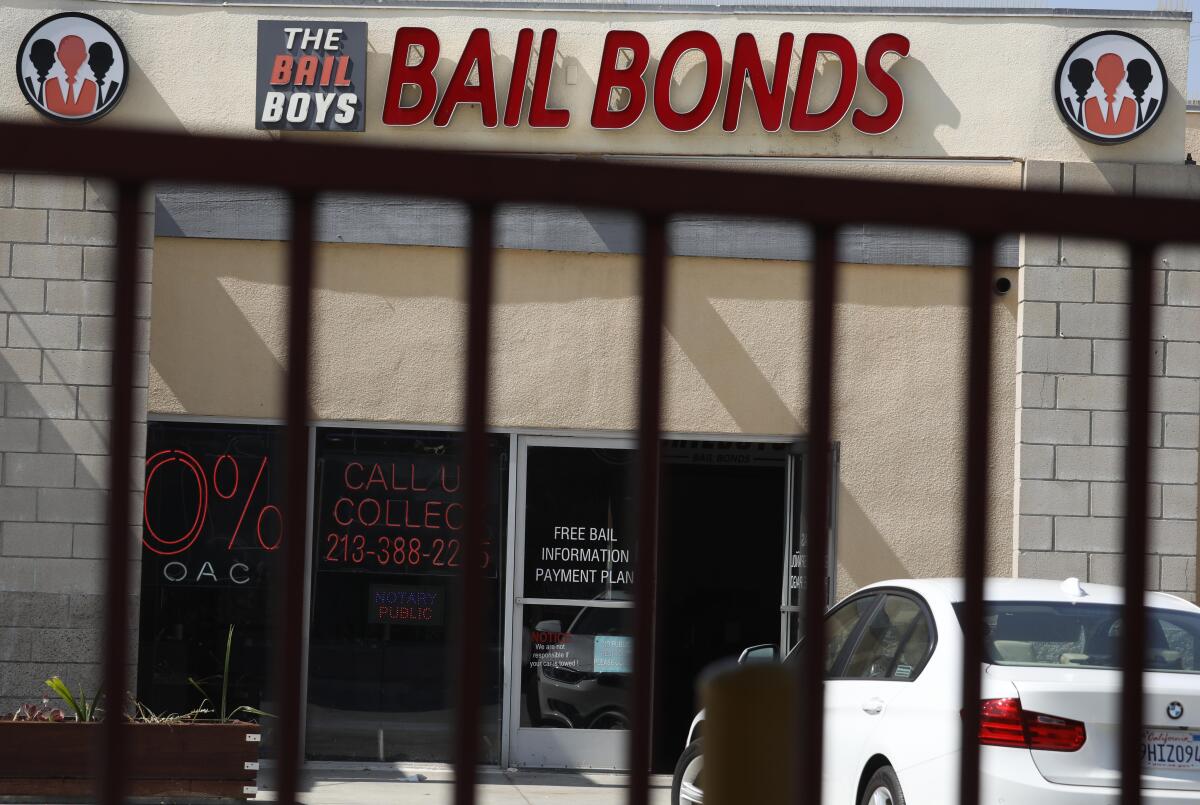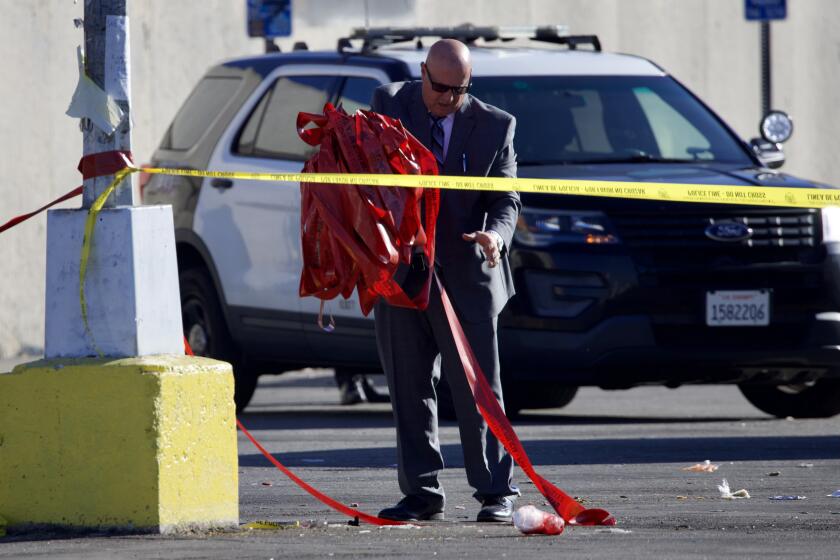Lawsuit challenging L.A. County’s new limits on cash bail suffers major setback

- Share via
A lawsuit challenging the legality of L.A. County’s new bail schedule suffered a major setback Monday, after a judge ruled the move to severely limit the use of cash bail does not violate the state Constitution.
The complaint, filed by a dozen L.A. County cities in late September, sought an injunction barring the Los Angeles County Superior Court from using the new schedule. The suit alleged the court violated its responsibilities to uphold public safety under the California Constitution by enacting a new policy that would eliminate the use of bail in almost all misdemeanor and nonviolent felony cases.
Orange County Superior Court Judge William Claster, who was hearing the case because it had to be moved outside of L.A. County, ruled Monday that the state Constitution does not require the use of money bail. Claster also said he could not grant the cities’ request for relief because it would overturn a preliminary injunction granted earlier this year that barred the Los Angeles police and sheriff’s departments from enforcing cash bail requirements except in cases deemed to carry a risk of violence.
Claster allowed the cities to amend their complaint, but his ruling broadly struck down each argument they made in their 85-page lawsuit filed in late September, shortly before the new bail schedule took effect.
The case is expected to return to court in March, and some of the plaintiffs remained positive Monday despite Claster’s ruling.
“We’ll go back and take another look at this in light of what the court said from the bench,” said Whittier Mayor Joe Vinatieri. “We will take another shot at it.”
Samuel Bond Haskell IV is ordered held without bail on charges that he murdered his wife and in-laws then left his wife’s torso in a dumpster.
Under the new schedule, which went into effect on Oct. 1, almost all misdemeanor defendants can be cited and released, or freed without bail after their case is reviewed by a judge. The judge has the option to institute other nonfinancial conditions of release, such as electronic monitoring or home supervision by probation officials, in each case.
Certain misdemeanors — including stalking, domestic battery and violation of a protective order — still require cash bail under the new schedule. Defendants accused of murder, manslaughter, rape and most types of assault still face hefty cash bail amounts.
The new bail schedule has drawn backlash from law enforcement leaders and some politicians, who argue releasing defendants without bail would lead them to re-offend without fear of consequences. Similar complaints were made after the county implemented an emergency “zero bail” policy to lower jail populations during the height of the COVID-19 pandemic. A report to the L.A. County Board of Supervisors last year showed that instances of re-arrest or failure to appear in court remained relatively unchanged in the wake of the policy.
“The message criminals get from the wide provision of cite-release or booking-release in the bail schedules is that they can immediately continue criminal activity with impunity, and with little actual, imminent consequences,” the lawsuit said.
Claster, however, ruled that he had no legal obligation to act simply because the cities disagreed with the wisdom of the court’s bail policy.
LAPD statistics show that violent crime — including homicides, rapes, robberies and shootings — is down this year, but there’s a lingering sense that the city is getting less safe.
“Whether the cities are correct in this assessment is not before this Court,” Claster wrote, adding that he could only rule on whether or not the policy complies with state law.
Although data on the effects of the 2-month-old bail policy are limited, court and police records raise doubts about the argument that the release of low-level offenders has led to any kind of crime surge.
According to data made public by the court last month, only 3% of the more than 5,000 people processed under the new bail schedule were re-arrested during the first three weeks it was in effect. In November, all categories of property crime decreased in Los Angeles, according to LAPD data.
More to Read
Sign up for Essential California
The most important California stories and recommendations in your inbox every morning.
You may occasionally receive promotional content from the Los Angeles Times.

















